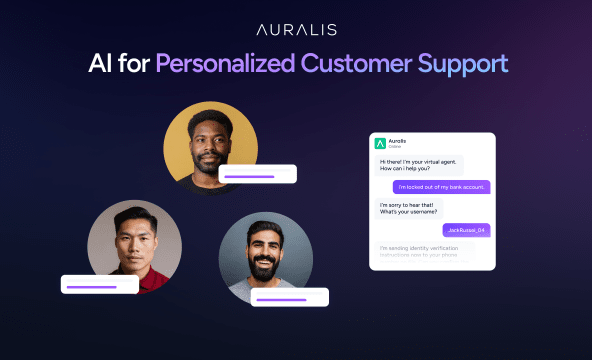Personalized customer support
Personalized customer support refers to tailoring customer service interactions to meet the unique needs, preferences, and behaviors of individual customers. It goes beyond generic responses by leveraging customer data and advanced technologies like artificial intelligence (AI) to create a more meaningful, relevant, and efficient experience. Personalized customer support makes customers feel valued, understood, and supported, which in turn improves their overall satisfaction, loyalty, and engagement with a brand.
One of the key benefits of personalized customer support is the ability to build stronger relationships with customers. By understanding their past interactions, preferences, and issues, businesses can offer solutions that are specifically relevant to each customer. For example, if a customer has previously purchased a product, a personalized support system can suggest complementary items, provide tailored troubleshooting steps, or offer special discounts based on their buying history. This level of personalization makes customers feel like their needs are recognized, which fosters trust and long-term loyalty.
Data-driven insights are at the heart of personalized customer support. Companies that use customer relationship management (CRM) systems or AI-powered tools can gather and analyze vast amounts of data from various touchpoints, such as previous service requests, purchase history, and feedback. By analyzing this data, businesses can gain deeper insights into customer needs and behaviors, allowing them to anticipate future inquiries, recommend relevant products or services, and provide more targeted solutions. For example, if a customer is struggling with a particular issue, personalized support systems can automatically reference their previous tickets and provide faster, more accurate resolutions based on prior cases.
Real-time customization is another aspect of personalized customer support. AI-powered systems and chatbots can adjust their responses in real-time based on the context of the conversation. For instance, if a customer shows frustration in a chat, AI systems can detect this sentiment and adjust the tone of the response, offering more empathetic or reassuring language. Additionally, the system can route more complex issues to human agents, ensuring customers get the right level of support when needed.
Omnichannel personalization enhances the customer experience by providing consistent support across various channels—whether through email, live chat, social media, or phone. Personalized customer support ensures that no matter how a customer reaches out, they receive consistent, tailored service. AI can integrate across channels, maintaining context and continuity. For example, if a customer starts a conversation via chat, then moves to email, the support team can pick up the conversation seamlessly, knowing the customer’s history, preferences, and previous interactions.
Moreover, anticipatory service is a growing trend in personalized customer support. With the help of predictive analytics, AI systems can foresee potential issues or customer needs before they arise. For example, if a customer has been browsing a product page for a while, the support team or AI system can reach out proactively, offering help or additional information to guide the purchase decision. Predictive models can also analyze patterns and identify customers who might need assistance with future product updates, renewal reminders, or troubleshooting.
Improved customer retention is a direct result of personalized support. When customers feel understood and that their specific needs are met, they are more likely to remain loyal to the brand. Personalized customer service helps reduce churn by building strong, positive relationships with customers. For instance, tailored loyalty programs, discounts, or service offerings based on customer preferences make the experience more engaging and rewarding.
Increased efficiency is another benefit of personalized support. By automating routine tasks and utilizing AI to manage common queries, businesses can speed up the resolution process while freeing human agents to focus on more complex issues. AI can gather essential customer information, ask relevant questions, and even provide suggested solutions or articles, helping the support team resolve issues faster.
In conclusion, personalized customer support enhances the customer experience by delivering tailored, relevant, and efficient service. Leveraging data, AI, and real-time customization helps businesses engage with customers more meaningfully, improving satisfaction, loyalty, and retention. By investing in personalized support strategies, businesses can build stronger relationships with their customers, ultimately leading to improved brand loyalty and a competitive edge in the marketplace.

- Articles
-
 Amy
Amy
- 7 min read
